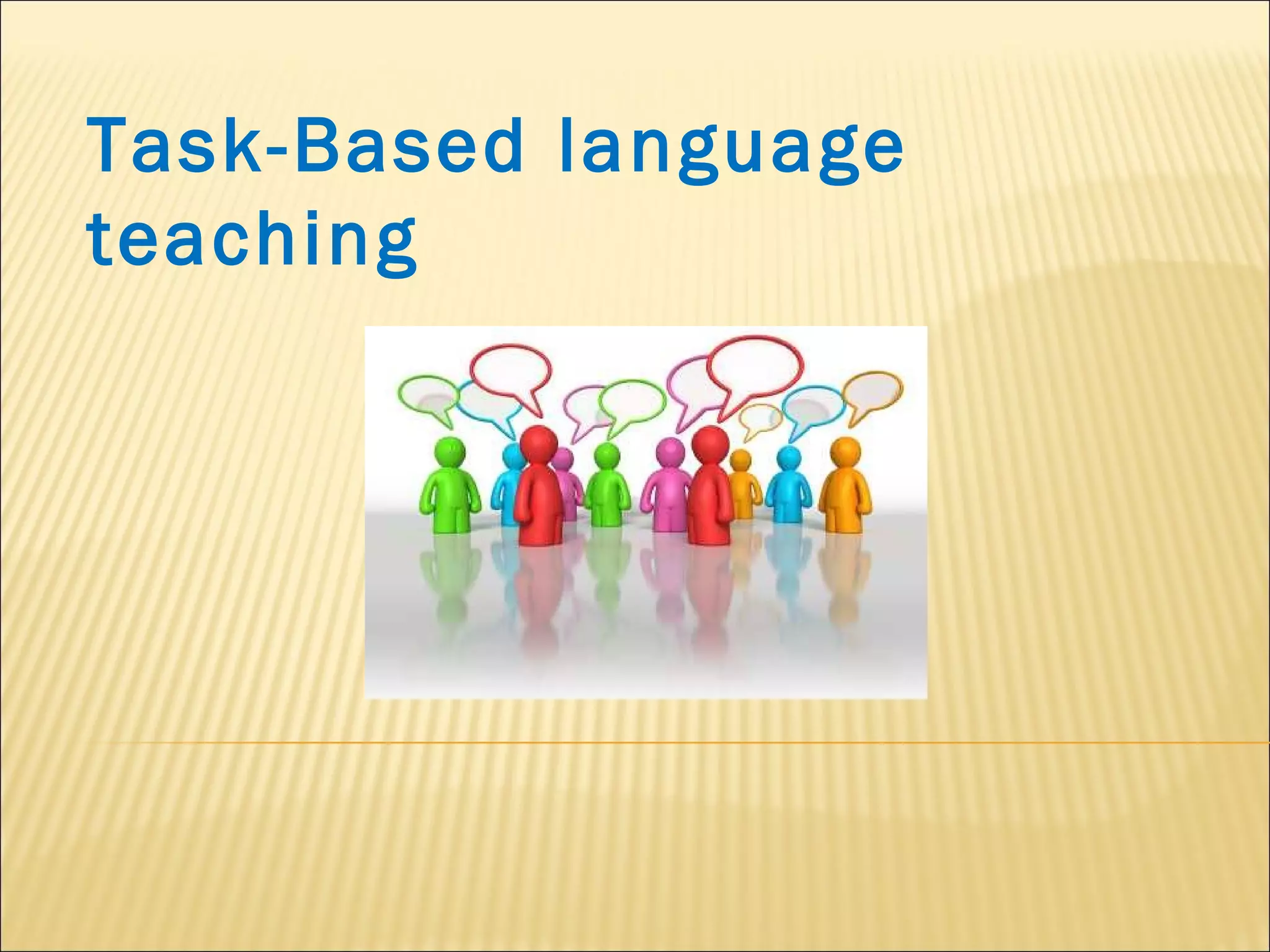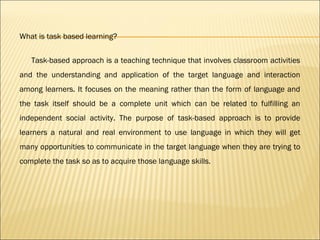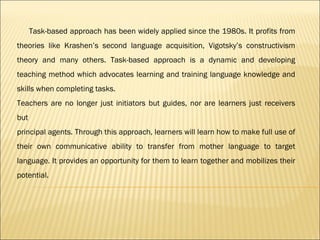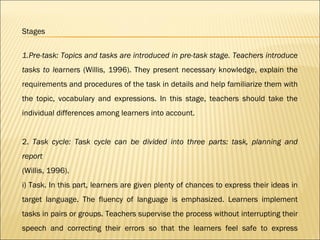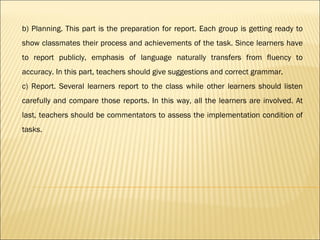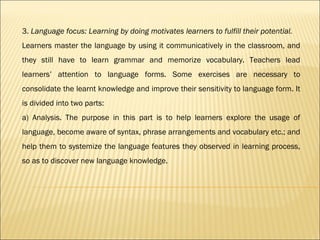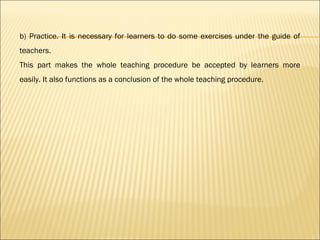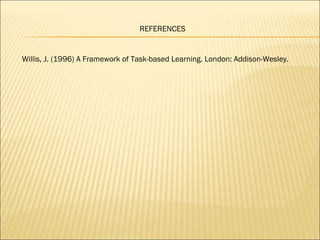Task-based language teaching involves classroom activities where students use the target language to complete meaningful tasks. It focuses on communication over language form. A task is a complete, real-world activity like fulfilling a social transaction. The process involves a pre-task introduction, a task cycle of task completion, planning and reporting, and a language focus on form. Teachers guide students through choosing topics, explaining tasks, and providing feedback without interrupting task completion. This approach allows students to learn through meaningful use of the language.
